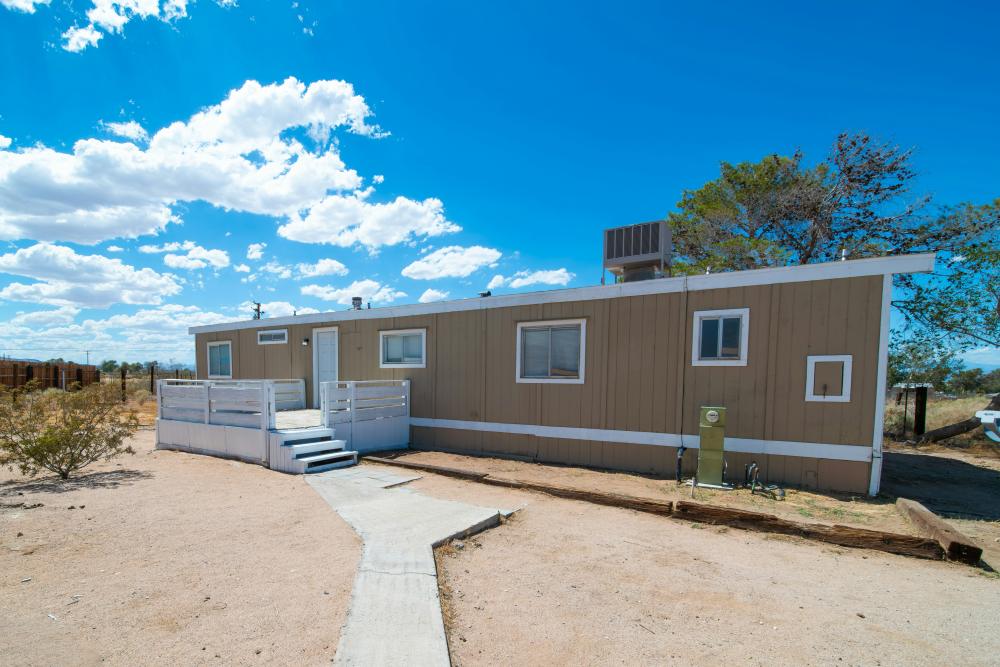For many, a mobile home represents an affordable entry into homeownership, a cozy retirement solution, or a temporary housing option. But there comes a point when life changes, and the question arises: is it time to let go? Whether prompted by relocation, rising maintenance costs, or the desire for a different lifestyle, parting with your mobile home can be both a practical decision and an emotional one.
Unlike traditional real estate, mobile homes come with unique considerations regarding depreciation, land ownership, and market demand. Knowing when and how to sell your mobile home can help you make the transition smoothly and without unnecessary complications. If you’re on the fence about selling, here are the key factors to help guide your decision.
Assessing the Physical Condition of Your Home
One of the most important indicators that it might be time to move on is the condition of the mobile home itself. Unlike site-built homes, mobile homes are built with materials designed for cost-efficiency and portability. Over time, especially without consistent maintenance, they can experience significant wear and tear.
Roof leaks, soft spots in the flooring, outdated electrical systems, and insulation issues can quickly escalate into costly repairs. If the cost of restoring your home to a livable or sellable condition exceeds its resale value, it may be a sign that it’s time to let go. On the other hand, if your home has been well-maintained, there could be good market opportunities for resale or relocation.
Evaluating Lot Ownership and Park Restrictions
Another factor to consider is your current land situation. Do you own the land your mobile home sits on, or are you renting space in a mobile home park? This distinction greatly impacts both your home’s value and your options for sale.
If you’re renting a lot, park regulations and lease terms may restrict who can buy your home or whether it can remain on the site. Some parks only allow homes of a certain age or style, and others may require approval for new residents. In these cases, finding a buyer can be more difficult, especially if the home must be moved.
Yet, if you own the land, you have greater flexibility. You can sell both the home and the land as a package, which tends to increase appeal and value. Understanding these dynamics helps clarify your next move and potential return. Offering options like owner financing can further attract buyers who may not qualify for traditional loans, making your property even more marketable.
Considering Lifestyle and Financial Changes
Letting go of a mobile home is often about more than just bricks and mortar, it’s about lifestyle. Perhaps you’re retiring, moving to a different region, or seeking more space for a growing family. Life transitions often trigger the reevaluation of living arrangements, and a mobile home may no longer suit your needs or goals.
Financial factors also play a big role. Rising utility costs, increasing park fees, or expensive repairs can eat into your monthly budget. Selling your mobile home might relieve financial pressure and allow you to redirect resources toward a more suitable living arrangement. The key is to determine whether your current home still fits your current and future life plans.
Understanding Market Demand and Timing
Just like any property, mobile homes are subject to market forces. If demand is strong in your area, due to affordability trends, rental shortages, or population growth, it might be an ideal time to sell. Conversely, if there’s an oversupply of homes or tightening regulations in mobile home communities, selling could be more difficult.
It’s also important to factor in the age of your home. Many buyers are looking for homes built after 1976, when HUD codes improved mobile home safety standards. If your home is older, it may be considered less desirable or even unaffordable, which can narrow your pool of potential buyers. Working with a professional who understands the nuances of mobile home sales, such as mobilehomebuyerfl, and other similar ones can simplify the process. Their experience can help you assess current value, marketability, and buyer interest, especially if you’re looking for a quick, hassle-free transaction.
Exploring Your Selling Options
Once you decide to sell, choosing the right method is key. You can list the home yourself, hire a real estate agent familiar with manufactured housing, or work with a direct buyer. Each option has pros and cons depending on your goals, timeline, and the condition of the home.
For example, direct buyers often offer cash and quick closings, which is ideal for sellers who want to avoid renovations or drawn-out negotiations. On the other hand, listing the home may attract higher offers, but it comes with more time and effort. Understanding your priorities will help you decide which path aligns best with your situation.
Preparing for the Emotional Side of Letting Go
Selling a home, mobile, or otherwise, is often an emotional decision. For some, it’s the end of an era filled with memories and milestones. For others, it’s a welcome release and a step toward something better. Either way, the emotional weight of selling shouldn’t be underestimated.
Giving yourself time to reflect, plan, and emotionally detach can make the transition smoother. Talk to loved ones, journal your thoughts, or revisit what your goals were when you first moved in. Knowing that you’ve made the most of your time in the space can provide closure and clarity as you prepare for what comes next.
Letting go of your mobile home can feel like a big decision, but it can also be the right one.
By considering the physical condition of the home, your lifestyle needs, park regulations, and the market demand, you can approach the process with confidence. With the right support and a clear understanding of your goals, moving on doesn’t have to be difficult—it can be a step toward something better, more sustainable, and more aligned with where you’re headed next.
Want to know more ways to manage your business and home?
Snag a free workbook and get inspiration on all the ways to love your life even more.
>>Click Here to Discover Additional Strategies for Managing Stress, Anxiety, and Burnout <<









